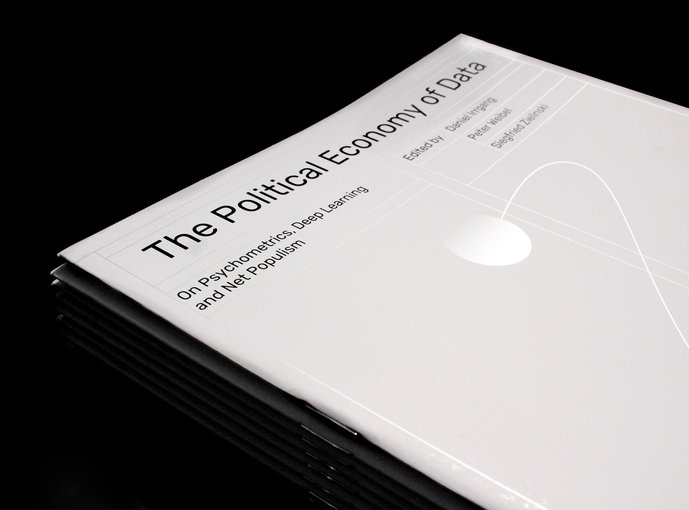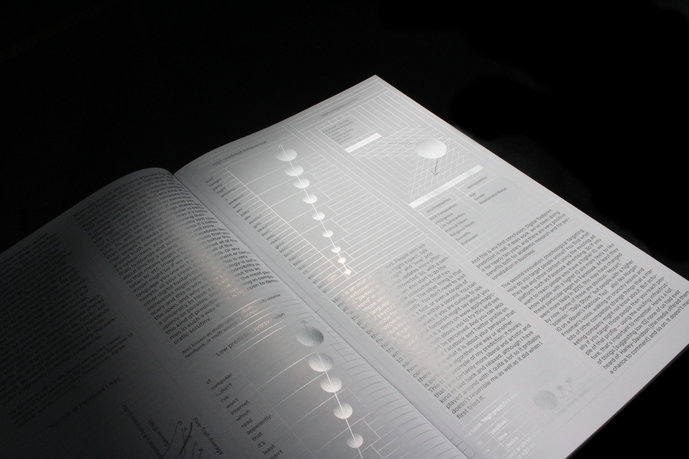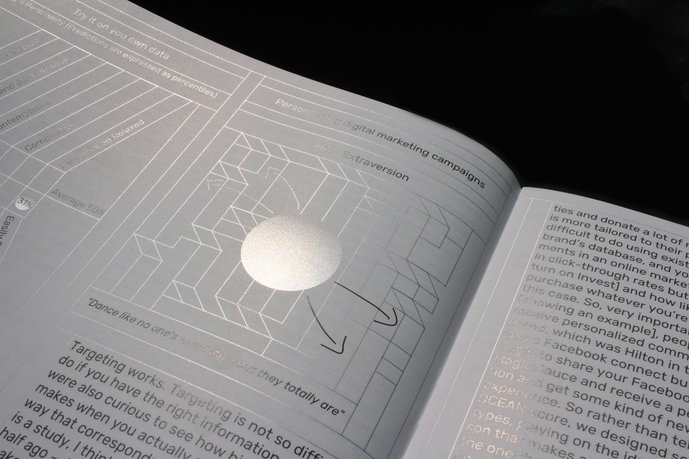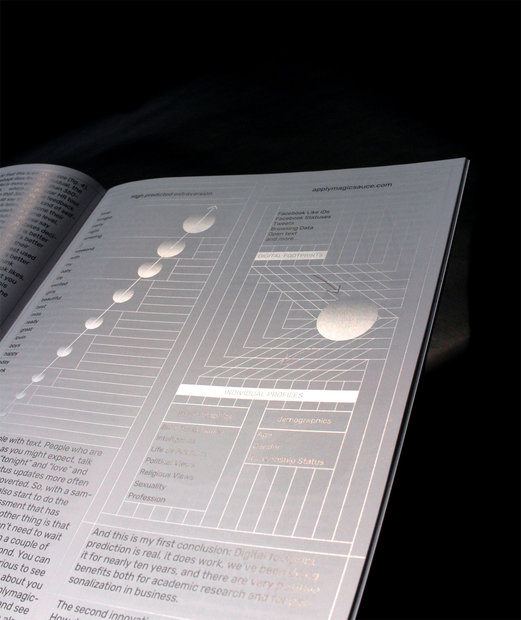

Cover (Detail) (© Tatjana Pfeiffer, Mio Kojima)


Spread (© Tatjana Pfeiffer, Mio Kojima)


Spread (Detail) (© Tatjana Pfeiffer, Mio Kojima)


Spread (Detail) (© Tatjana Pfeiffer, Mio Kojima)
In April 2017, ZKM and HfG Karlsruhe put on a panel discussion in which the topics social targeting, net populism and the effects of the data society were discussed. The publication The Political Economy of Data was created within this framework. Through various contributions it sheds light on the democratic potential of the internet as well as its dialogical and thus revolutionary possibilities. It also questions to what extent the analysis of user behavior enables both productive effects on personalized content and can support quasi-demagogic tendencies.
This ambivalence between democratic potential and data-fishing is also reflected in the concept of open-source. Users can use programs for free, but usually pay with the consent of the use and evaluation of their data and their behavior. A well-known example of this is the Internet giant Google, which provides a variety of free-to-use services but in return has access to a large amount of personal data via this route and evaluates them for its own purposes.
One of these programs was used in the design of the publication. The spreadsheet program Google Sheets is part of Google's free web-based office suite. What defines it in comparison to similar programs is the ability to implement various add-ons. The extensions offered by companies and private individuals (also in line with the open-source concept) make it possible to quantitatively and qualitatively evaluate various data contained in the document – for example, to analyze texts for the words used or to search for coordinates of named places. In the publication, too, an analysis of what has been said is carried out by examining the text, i.e. the body of the text is apprehended in a similar way to a person.
Moreover, the use of a largely known or at least freely accessible program is intended to make the process of designing transparent and comprehensible. In addition to the print object, there is also an online version - the link to the Google Sheets file, which reveals grids, tools and the user interface: www.bit.ly/politicaleconomyofdata
Mio Kojima majors in communication design and minors in scenography and exhibition design. She is interested in the nodes in the network of language, perception, signals and image; for gestures metaphors and translations.
Tatjana Pfeiffer majors in communication design and minors in product design. She is interested in holding an insight into various areas and finding her own access to these areas through design.
Tutors: Sereina Rothenberger und Anton Stuckardt